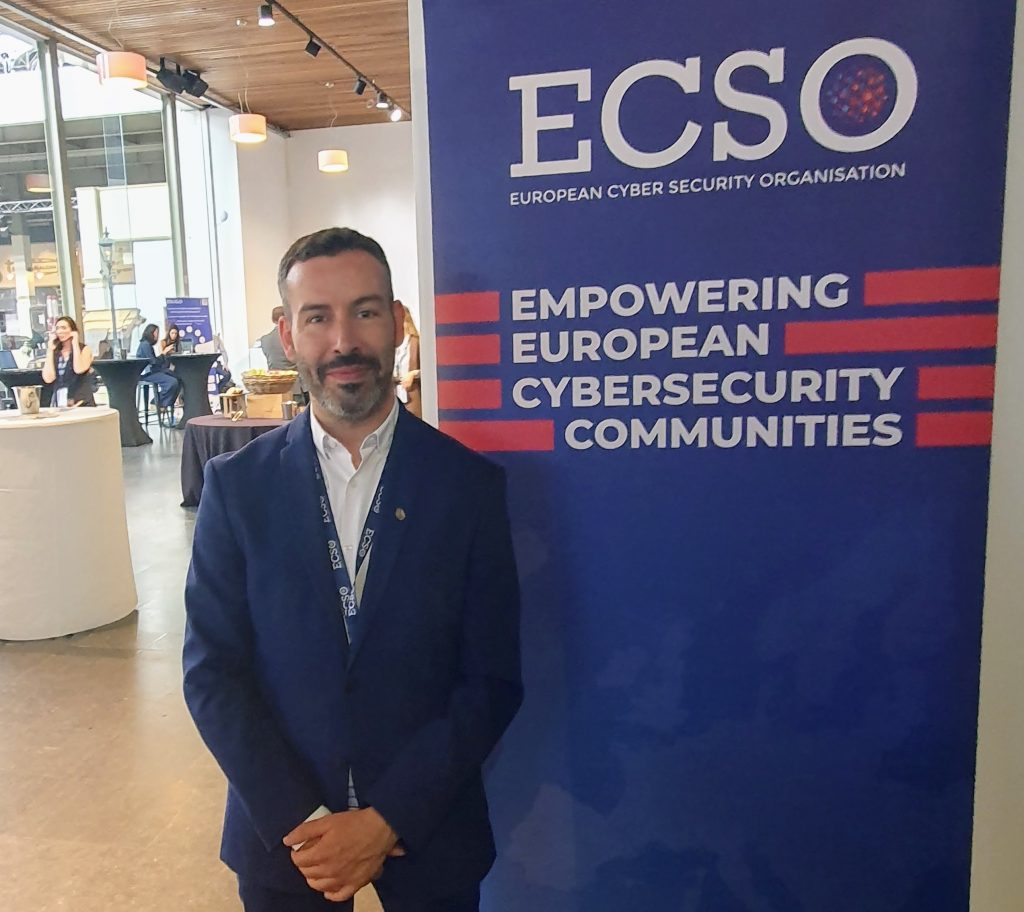
Researcher José Vázquez Naya reinforces CITIC’s leadership in European cybersecurity through his participation in the ECSO Days 2025
The Centre for Research in Information and Communication Technologies (CITIC) at the University of A Coruña has strengthened its presence within the European cybersecurity ecosystem by taking part in the General Assembly and the ECSO Days 2025, held in Brussels at the end of last June. This event stands as one of the foremost forums on the subject at the European level.
José Vázquez Naya, a researcher in CITIC’s cybersecurity division and member of the RNASA-IMEDIR group, represented the centre at these meetings, organised by the European Cyber Security Organisation (ECSO), a key entity in driving public-private collaboration in the cybersecurity domain across Europe.
During the event, José Vázquez Naya took an active role in the discussions, established strategic connections with institutional and corporate stakeholders in the field, and presented CITIC’s main lines of research and development in cybersecurity.
ECSO’s General Assembly brought together its members to address strategic and governance-related issues within the organisation. One of the highlights of the session was the appointment of Joanna Świątkowska as the new Secretary General, succeeding Luigi Rebuffi, ECSO’s founder and Secretary General until then. Świątkowska, who brings over 16 years of experience in the sector and previously served as Deputy Secretary General, now assumes leadership of the organisation with a renewed and cross-sectoral vision.
The ECSO Days 2025, the organisation’s flagship annual event, gathered a broad representation of cybersecurity experts from more than 27 European countries, including EU Member States and countries from the European Free Trade Association (EFTA). The various sessions focused on key issues for the future of cybersecurity in Europe, such as the development of next-generation technologies; the evolution of EU cybersecurity policy—particularly the implementation of the NIS2 directive; the imperative to strengthen public-private cooperation to build a more resilient digital Europe; the promotion of innovation and investment; and the challenges associated with training and attracting specialised cybersecurity talent.





